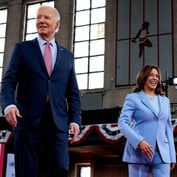WASHINGTON BUREAU — Life insurers are asking members of the Senate Finance Committee to kill a proposed tax on large insurers that own broker-dealers.
Patrick Baird, chairman of Aegon USA Inc., Cedar Rapids, Iowa, and immediate past chairman of the American Council of Life Insurers, Washington, is preparing to talk about ACLI members’ objections to the proposal Tuesday during a financial institutions fee hearing organized by the Senate Finance Committee.
Obama administration officials have included the “financial responsibility fee” tax in the fiscal year 2011 budget proposal. If implemented as written, the tax would apply to insurers with more than $50 billion in total assets, and an insurer subject to the tax would pay an amount equal to 0.15% of the value of specific types of liabilities.
The tax also would apply to banks, thrifts, bank holding companies, thrift holding companies, brokers and securities dealers, and to companies that owned or controlled those types of entities on Jan. 14, 2010.
Although some insurers may own a bank, thrift or broker-dealer, these are generally “small parts of their business operations,” Baird says in a written version of his testimony. “Life insurers engaged in the variable annuity or variable life insurance business often own a broker-dealer to facilitate the distribution of these contracts, and some life insurers own thrifts to carry out trust services.”
Analysts at the Joint Committee on Taxation have concluded that the life insurers that pay the tax “will be at a competitive disadvantage in their sector of financial services as a result,” Baird says.
The Senate is proposing to impose the large financial institutions tax on all institutions with more than $50 billion in assets, regardless of the size of the institutions’ bank, thrift or broker-dealer units, Baird says.








 May 03, 2010 at 08:00 PM
May 03, 2010 at 08:00 PM










